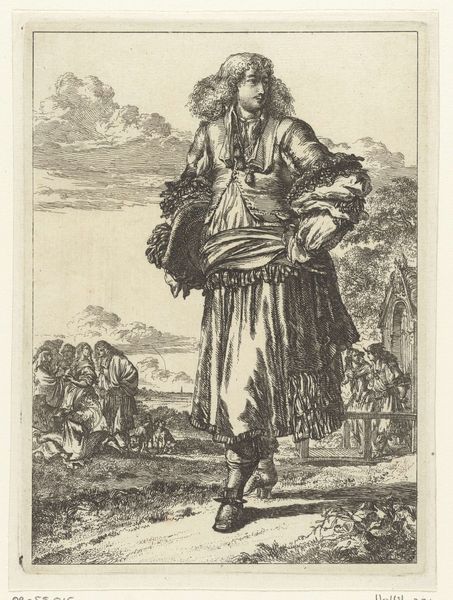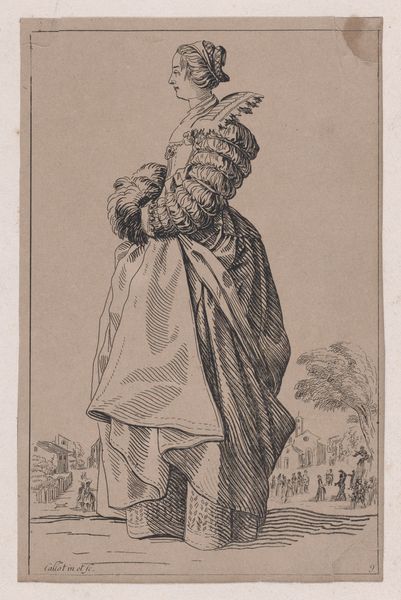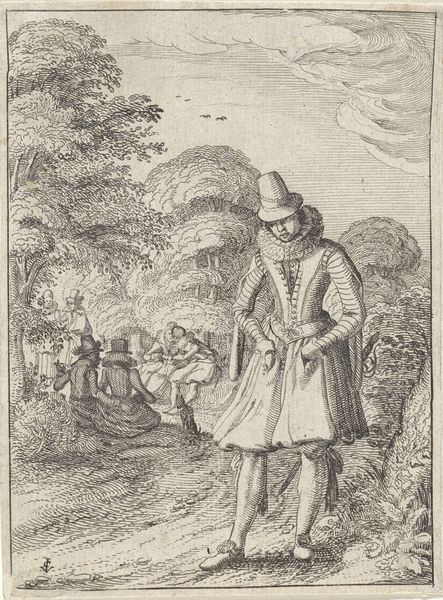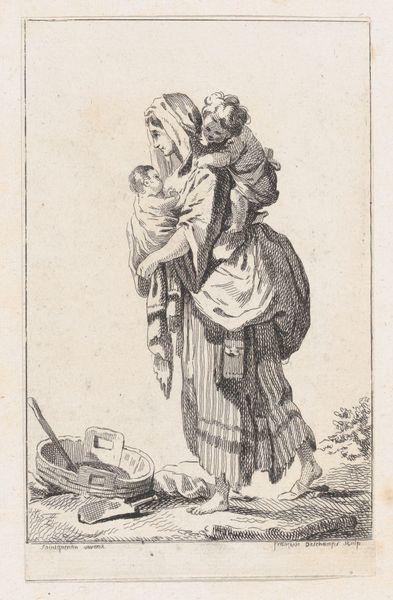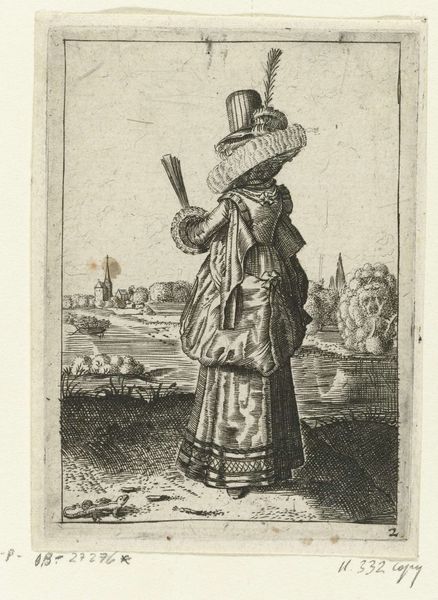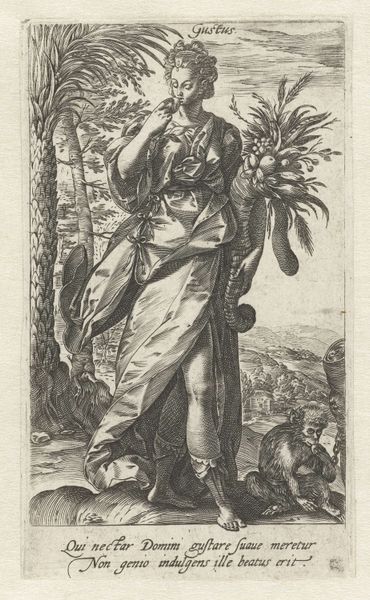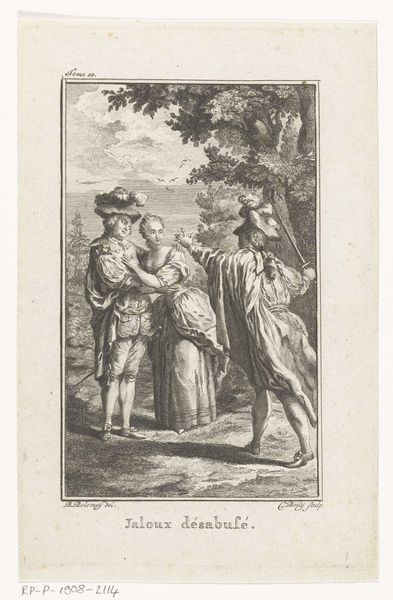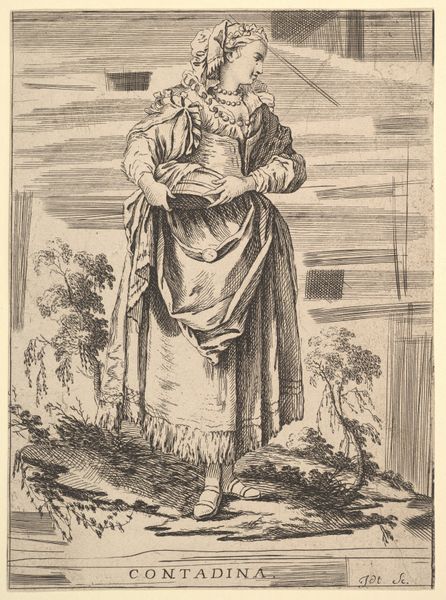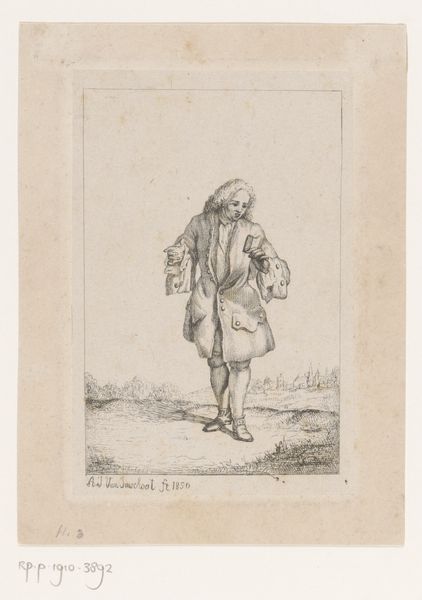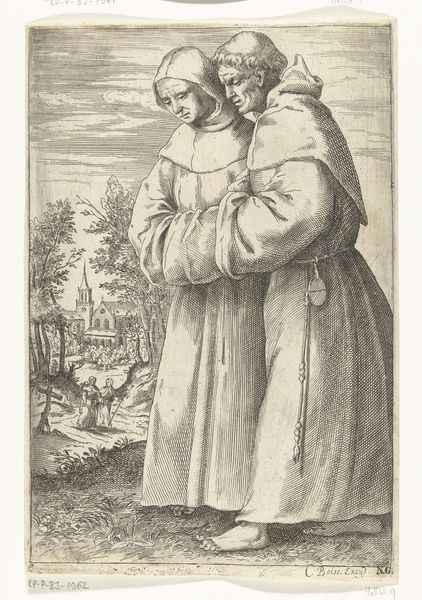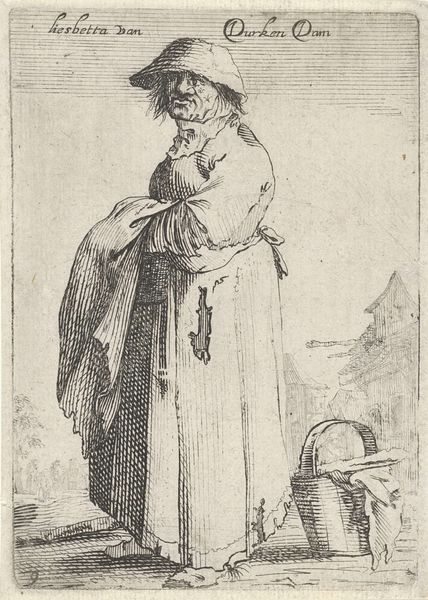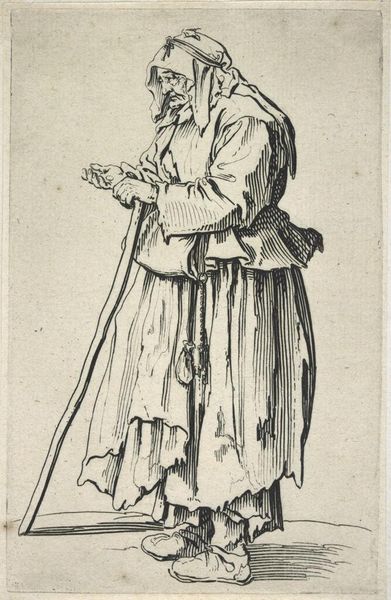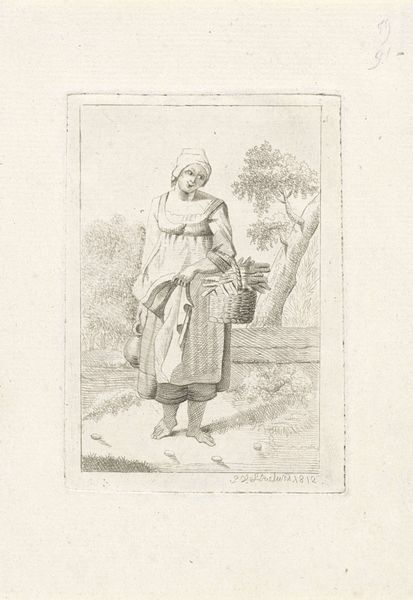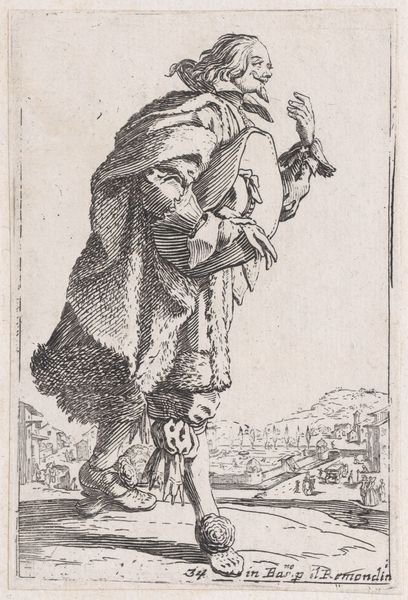
print, engraving
#
portrait
#
baroque
# print
#
old engraving style
#
genre-painting
#
engraving
Dimensions: height 167 mm, width 123 mm
Copyright: Rijks Museum: Open Domain
Curator: Standing before us is "Figures à la Mode," an engraving by Romeyn de Hooghe, dating back to between 1670 and 1685, part of the Rijksmuseum collection. It’s an intriguing slice of Baroque fashion and genre scene. Editor: My first thought? Melancholy grandeur. There's something wonderfully theatrical about him, yet also slightly absurd with those floppy bows on his shoes. Like a fallen dandy. Curator: Exactly! De Hooghe was masterful in etching, wasn't he? Note the intricate details – the rendering of textiles, for instance. Consider how he used lines to convey texture and light, reflecting the Dutch emphasis on skillful production. And notice that his work often poked fun at contemporary society, satirizing trends in dress and behavior. Editor: The weight of all that fabric! He appears almost overwhelmed by his finery, hunched over, holding what looks like a bird of prey. Maybe it is a symbol of his status... or of his own entrapment. Curator: Well, printmaking in this period had a very specific function—mass dissemination. Prints like this weren’t simply decorative; they acted as mirrors reflecting the perceived social and economic hierarchies. De Hooghe targeted specific audiences— the merchant class—with aspirational cues about behavior and taste, but also as biting criticisms. Editor: And I'm drawn to the tiny figures in the background – they seem to be performing for an audience, mirroring the main figure’s pose of deliberate showiness. Like everyone’s aware they’re being watched and judged. Curator: These fashionable figures are captured through a meticulously executed engraving process, revealing the techniques used to reproduce and distribute social ideals. Each element highlights consumption. Even the way the paper was produced and how the ink interacts— these are vital to its effect! Editor: Thinking about it...there is that tangible aspect of it, as a print, of holding an idea in your hands. Not just viewing it. How would that impact 17th-century consciousness, compared to how we ingest images today? Curator: Indeed, we can recognize that "Figures à la Mode" goes beyond mere representation and touches on material realities influencing Dutch cultural identity at this moment. Editor: I am so glad we considered those layers! Next time I think I am going to be even more playful!
Comments
rijksmuseum over 2 years ago
⋮
From the middle of the 17th century fashionable men wore ‘rhinegraves’, extremely full breeches decorated with an ‘apron’ of braids under long fitted coats. The long curly hair, high-heeled shoes, large bands and profusion of buttons and bows amazed many contemporaries. The men in this series by De Hooghe almost seem to succumb to their garments.
Join the conversation
Join millions of artists and users on Artera today and experience the ultimate creative platform.
